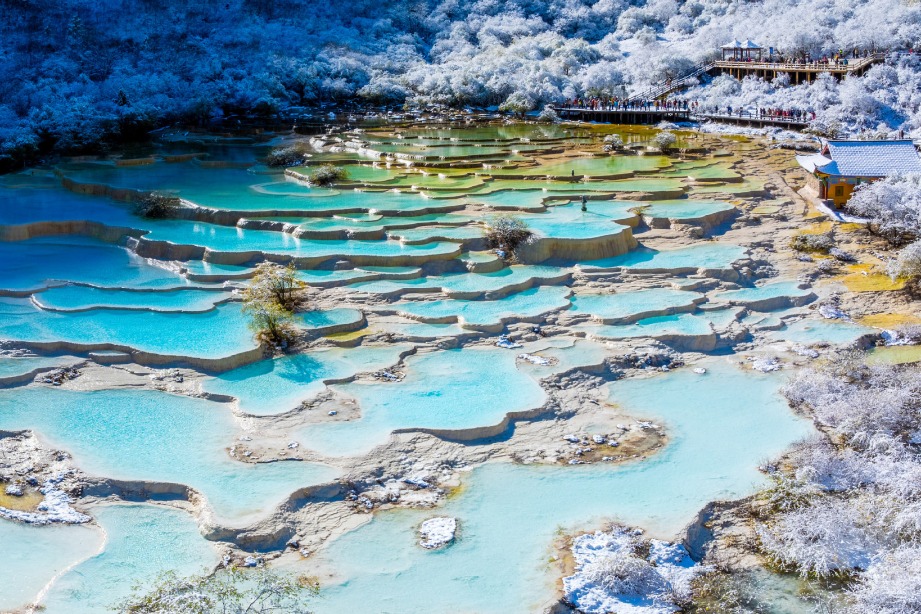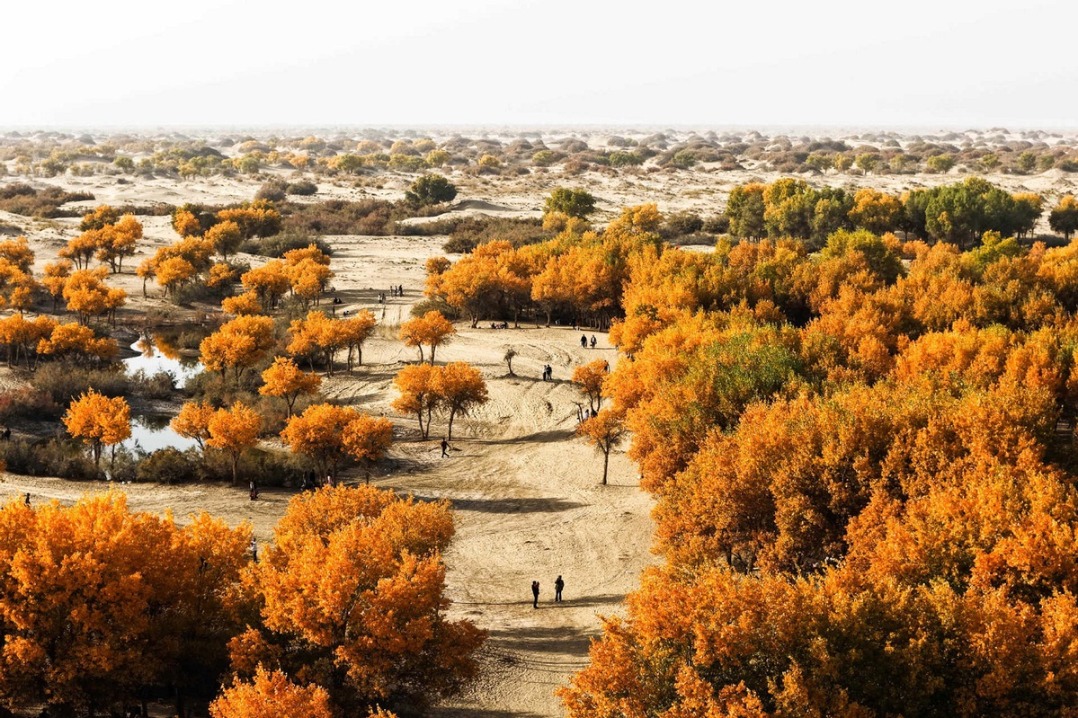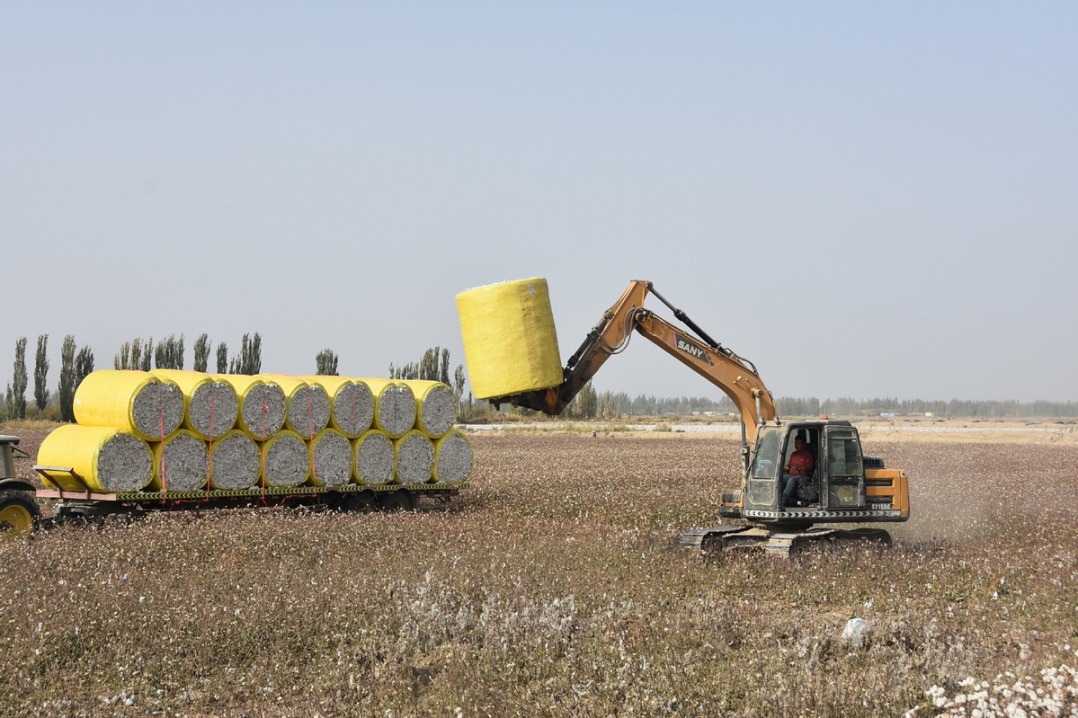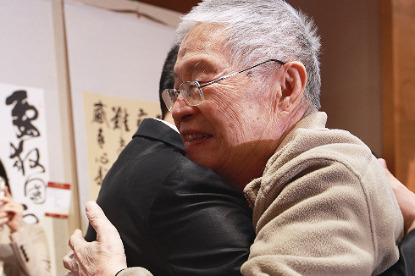Deepening cooperation for geological research
China collaborates with Saudi Arabia for 4 major earth sciences projects

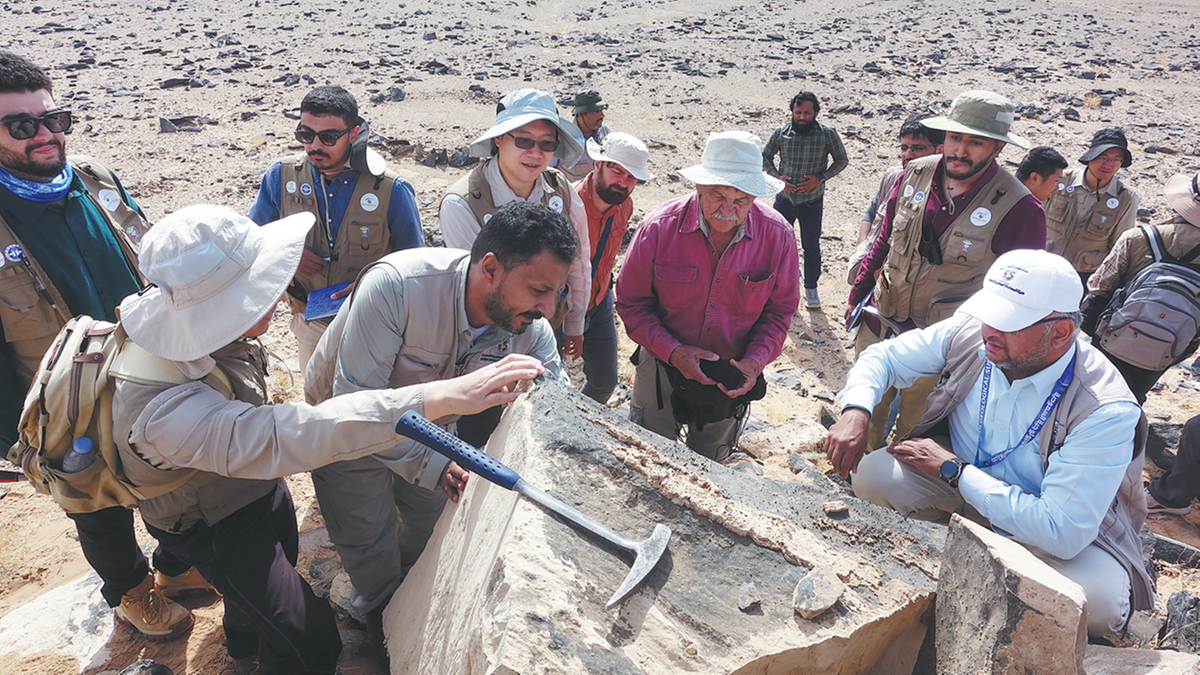
China has deepened international cooperation in earth sciences aimed at understanding the planet's systems, promoting sustainable use of resources and fostering green development around the world, the Ministry of Natural Resources said.
Since 2020, the China Geological Survey, an institution under the ministry, has collaborated with partners from Saudi Arabia to undertake four major earth science projects to support Saudi Arabia's resource exploration.
Ji Wenhua, deputy director of the CGS Xi'an center in Shaanxi province, said the projects, involving 40 Chinese institutions and over 200 technical professionals, have introduced international standards for geochemical mapping and core analysis while fostering local technical capacity.
Ashraf N. Qubsani, the geological mapping project manager of RGPSGS of Saudi Arabia, said the two sides combined their expertise to establish shared standards that balance China's detailed field observation approach with Western methods.
"Through close collaboration and technical discussions, we compared and analyzed the strengths of both systems. This 'collision' of ideas proved to be highly productive — leading to the development of a more optimized set of geological mapping standards for this project, "Qubsani said, adding that the new standards lead to higher efficiency and greater precision mapping.
The projects have become a platform for cultivating Saudi geologists, working shoulder to shoulder with Chinese teams, exchanging experience, learning advanced mapping techniques, participating in data analysis and interpretation, and contributing to publications according to Qubsani. "The project has not only enhanced their technical capabilities but also strengthened mutual trust and friendship between the two sides," he said.
Minister of Natural Resources Guan Zhiou said the field of geology and mineral resources is an important area of Sino-Saudi cooperation. "Both sides seek to deepen and expand geological survey cooperation, strengthening collaboration in fundamental geological investigations and mineral resource potential assessments," he said in September.
In the information age, data has become a driving force behind advances in earth science. China has taken a leading role in building shared geoscience data platforms that provide open access to information on resources, ecosystems, and geological processes, according to CGS.
Through international collaboration, Chinese scientists have developed large-scale databases that support global research on environmental change and resource assessment.
Wang Xueqiu, chief scientist at the Institute of Geophysical and Geochemical Exploration of the Chinese Academy of Geological Sciences, said that by deepening geochemical and geophysical studies, China can better understand the distribution of elements and resources across continents and provide key data for global environmental protection.
One of the milestones is the establishment of the UNESCO International Research Centre on Global-Scale Geochemistry, jointly founded by the Chinese government and UNESCO in 2016. The center launched the international big science program of "Chemical Earth" to build a global geochemical baseline network. "The program has so far covered 37.74 million square kilometers, establishing a global geochemical baseline network that spans about 33 percent of the world's land area, providing big data support for the sustainable development of global resources and the environment, "Wang said.
China has also partnered with 11 countries, including Mongolia, Laos and Cambodia, to produce geochemical maps of 69 elements, helping several nations publish their first maps of this kind. "These datasets have supported soil protection and improved crop yields and quality in developing countries," he said.
Meanwhile, to advance karst research and global carbon studies, China and UNESCO established the International Research Center on Karst in 2008. The center leads the big scientific program of "Global Karst Dynamic Systems", according to Zhang Cheng, deputy head of the center.
Working with experts from 26 countries, Chinese scientists have built a carbon cycle model of karst regions and quantitative assessment models, developed new technologies for groundwater utilization, and improved water security in regions where karst geology makes water scarce, said Zhang, who is also the Chair of the Technical Committee on Karst, International Organization for Standardization.
The IRCK has also established global monitoring networks in the Mediterranean and subtropical regions to track carbon cycling in karst ecosystems. These efforts have contributed to the understanding of natural carbon sinks and supported international climate mitigation policies.
"By advancing karst carbon monitoring and standardization, we are helping accelerate the global process of reducing carbon emissions, "Zhang said.
China is also advancing international cooperation in resource utilization and low-carbon industrial transformation.
An energy-saving and low-carbon upgrade project of the phosphate chemical industry, funded by the Global Environment Facility and supervised by the United Nations Development Programme, was officially launched in March 2023.
The project runs from August 2022 to August 2027, aiming to promote the widespread adoption of low-carbon and energy-saving technologies in China's phosphate mining industry and support its transition toward green and high-quality development, according to the Institute of Mineral Resources of the Chinese Academy of Geological Sciences.
Han Zhijun, deputy director of the institute, said key initiatives include conducting five pilot demonstration projects in the provinces of Sichuan, Guizhou, and Yunnan — covering mining, mineral processing, and tailings utilization — as well as building a carbon accounting system for the entire phosphate production process. It also focuses on the development of financing plans to help small and medium-sized enterprises achieve green transformation.
"The project contributes not only to China's ecological progress but also to the global climate agenda and the UN 2030 Sustainable Development Goals," Han said.
To support global scientific engagement, China is investing heavily in training international earth science professionals. Currently, 63 Chinese researchers of CGS serve in international geoscience organizations such as relevant UNESCO institutions and the International Union of Geological Sciences.
CGS has taken various measures to strengthen its personnel's skills in geosciences and international cooperation, aiming to cultivate a new generation of internationally minded scientists capable of leading collaborative research projects and representing China in global science governance, it said.
zhaoyimeng@chinadaily.com.cn
- Deepening cooperation for geological research
- Taiwan compatriots invited for anniversary
- North of country sees rapid shift in seasons
- Jingdezhen a 'rare space' for creators, French ceramic artist says
- China revitalizes 88 key rivers, lakes in ecological restoration drive
- La Nina weather pattern could bring extreme cold, droughts, says NCC
















